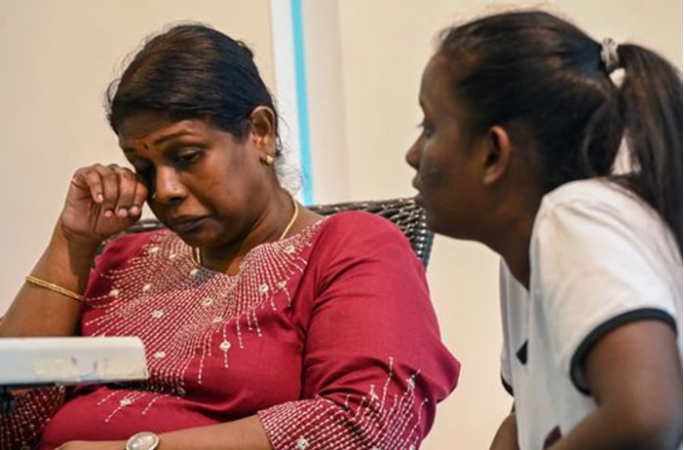
Hong kong: In spite of pleading for mercy from his family and objections from activists who claimed that his conviction was based on flimsy evidence, Singapore executed a man accused of organising a cannabis delivery on Wednesday.
In 2018, 46-year-old Tangaraju Suppiah received a death sentence for assisting in the trafficking of one kilogramme of cannabis. Trafficking in cannabis weighing more than 500 grammes is punishable by death in Singapore.
According to a tweet from activist Kirsten Han of the Transformative Justice Collective, which fights for the abolition of the death penalty in Singapore, Tangaraju was hanged on Wednesday morning and his family was given the death certificate.
Also Read: The Girls, Women, and Society Chair is established by ICESCO at Omar Bongo University in Gabon
Despite not being found in possession of the cannabis, Tangaraju was identified by phone numbers as the person in charge of organising the drug deliveries, according to the prosecution. Tangaraju had insisted that he wasn't in contact with the other people involved in the case.
At a briefing on human rights held by the UN on Tuesday, spokesperson Ravina Shamdasani urged Singapore to implement a "formal moratorium" on capital punishment for crimes involving drugs.
"Imposing the death penalty for drug offences is incompatible with international norms and standards," claimed Shamdasani, who also noted that mounting data indicates the death penalty is ineffective as a deterrent.
Authorities in Singapore claim that there is a deterrent effect and cite studies showing that traffickers carry amounts below the legal limit that would result in the death penalty.
Contrary to its neighbours, the island state imposes the death penalty for drug offences. Cannabis has essentially been legalised in Thailand, and Malaysia has abolished the death penalty as a mandatory sentence for serious crimes.
Also Read: 'Let's finish this job,' says Biden in announcing his bid for reelection in 2024
In Singapore, 11 drug-related criminals were put to death in 2017. One case that caused concern on a global scale involved a Malaysian man whose solicitors claimed he had a mental illness.
The Anti-Death Penalty Asia Network deemed Tangaraju's execution to be "reprehensible."
The statement said that the Singaporean government's continued use of the death penalty was "an act of flagrant disregard for international human rights norms and casts aspersion on Singapore's criminal justice system."
The President of Singapore, Halimah Yacob, had received letters from relatives and activists pleading for mercy. The niece and nephew of Tangaraju pleaded with the public to voice their concerns to the government regarding Tangaraju's impending execution in a video that was posted by the Transformative Justice Collective.
Tuesday saw the non-hearing of Tangaraju's application for a stay of execution, which was submitted on Monday.
Singapore claims to provide 'due process' to those who are waiting to be executed, but fair trial violations are common in cases where the death penalty is being applied: As lawyers who take such cases are intimidated and harassed, defendants are being left without legal representation when they are facing an impending execution, according to Maya Foa, director of the non-profit human rights organisation Reprieve.
Also Read: Despite Rana Plaza Bangladeshi garment workers continue to fight
Critics claim that the death penalty in Singapore has primarily targeted low-level mules and has had little effect against organised crime and drug trafficking. Singapore's government, however, claims that the death penalty is necessary to protect its citizens and that all those who have been executed have received full due process of the law.
The outspokenly pro-abolitionist British billionaire Richard Branson called for an end to the execution in a blog post, warning that "Singapore may be about to kill an innocent man."
Branson's accusations were criticised by Singaporean authorities, who claimed that he had disrespected the country's judicial system because Tangaraju's guilt had been established by the evidence.